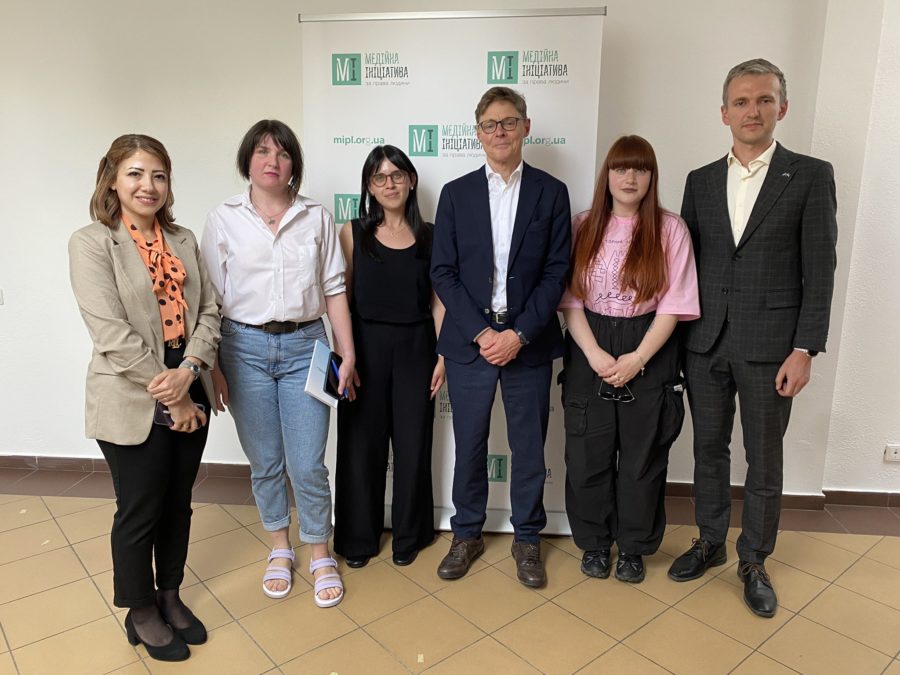ZMINA handed over cases of civilian executions by Russians to the UN Special Rapporteur on extrajudicial executions
On 22 May, representatives of Human Rights Centre ZMINA, Media Initiative for Human Rights and Human Rights House Chernihiv met with the UN Special Rapporteur on extrajudicial executions, Morris Tidball-Binz. At the meeting, ZMINA handed over information on the documented cases of extrajudicial killings of civilians committed by the Russian military and security forces in Kyiv, Kharkiv and Kherson regions during the occupation.

Yelyzaveta Sokurenko, the Head of War Crimes Documentation Department at Human Rights Centre ZMINA, and other participants of the meeting spoke about strengthening forensic medical documentation of extrajudicial killings, torture and sexual violence related to the war in Ukraine.
The Special Rapporteur is on an official visit to Ukraine from 20 to 31 May 2024 at the invitation of the Government. Dr Tidball-Binz is investigating how extrajudicial killings are investigated, particularly those arising from the ongoing armed conflict: extrajudicial executions, deaths in custody and gender-related killings. He will also examine how the rights of victims are being protected.
During his visit, the Special Rapporteur will meet with State authorities, national and international investigative bodies, civil society organisations, as well as victims and their families. Based on the results of the visit, Dr Tidball-Binz will publish a report that will address a wide range of issues related to this topic in Ukraine and will include recommendations. The last such report was published in 2016.
In April, Human Rights Centre ZMINA sent a submission to the UN Special Rapporteur on extrajudicial executions, which outlines the main patterns of extrajudicial killings of Ukrainian civilians by the Russian military. Among them, in particular, are the following:
- Since a body with traces of torture or ill-treatment can serve as evidence of a crime, the Russian military tried to hide the bodies of the victims or bury them in mass graves to further complicate the identification of individual victims.
- People who were tortured and ill-treated in detention and died as a result of such actions could have survived if medical care had been provided in a timely manner and of the right quality.
- The method of “pair interrogations” is widespread, when, in front of one family member or close friend of their loved ones, the Russian military takes them to another room and shoots them near the head, simulating an execution, thus putting pressure on the other person, who is interrogated right there.
- The Russian military uses mock executions to intimidate and coerce the tortured person into giving false self-incriminating testimony, as well as to intimidate other civilians in illegal detention facilities.
For information: The Special Rapporteurs are part of the “special procedures” of the UN Human Rights Council. The Special Procedures, the largest body of independent UN human rights experts, are the common name for the Council’s independent information-gathering and monitoring mechanisms that address either specific country situations or thematic issues in all parts of the world. Special Procedures experts work on a voluntary basis: they are not UN staff members and do not receive a salary for their work. They are independent of any government or organisation and work in their individual capacity.
If you have found a spelling error, please, notify us by selecting that text and pressing Ctrl+Enter.















